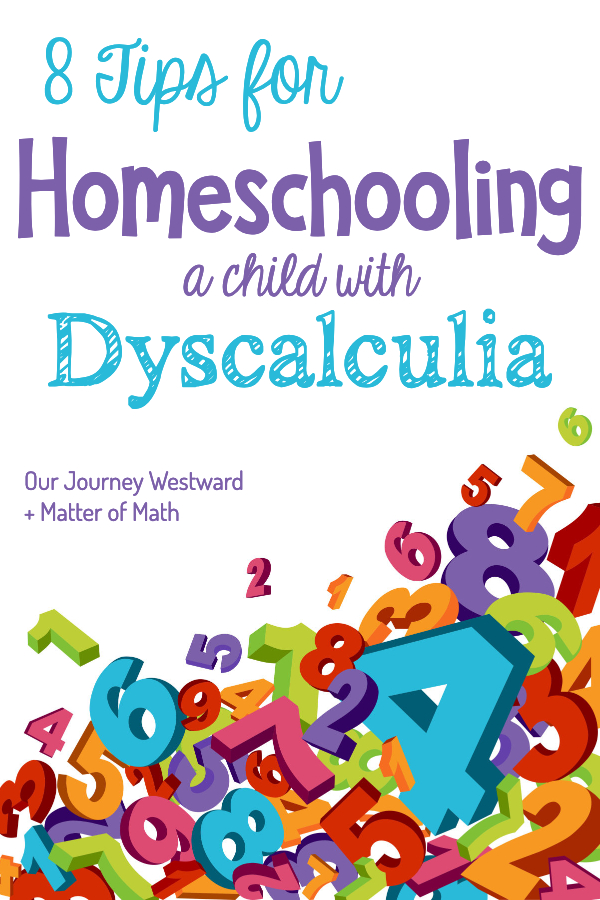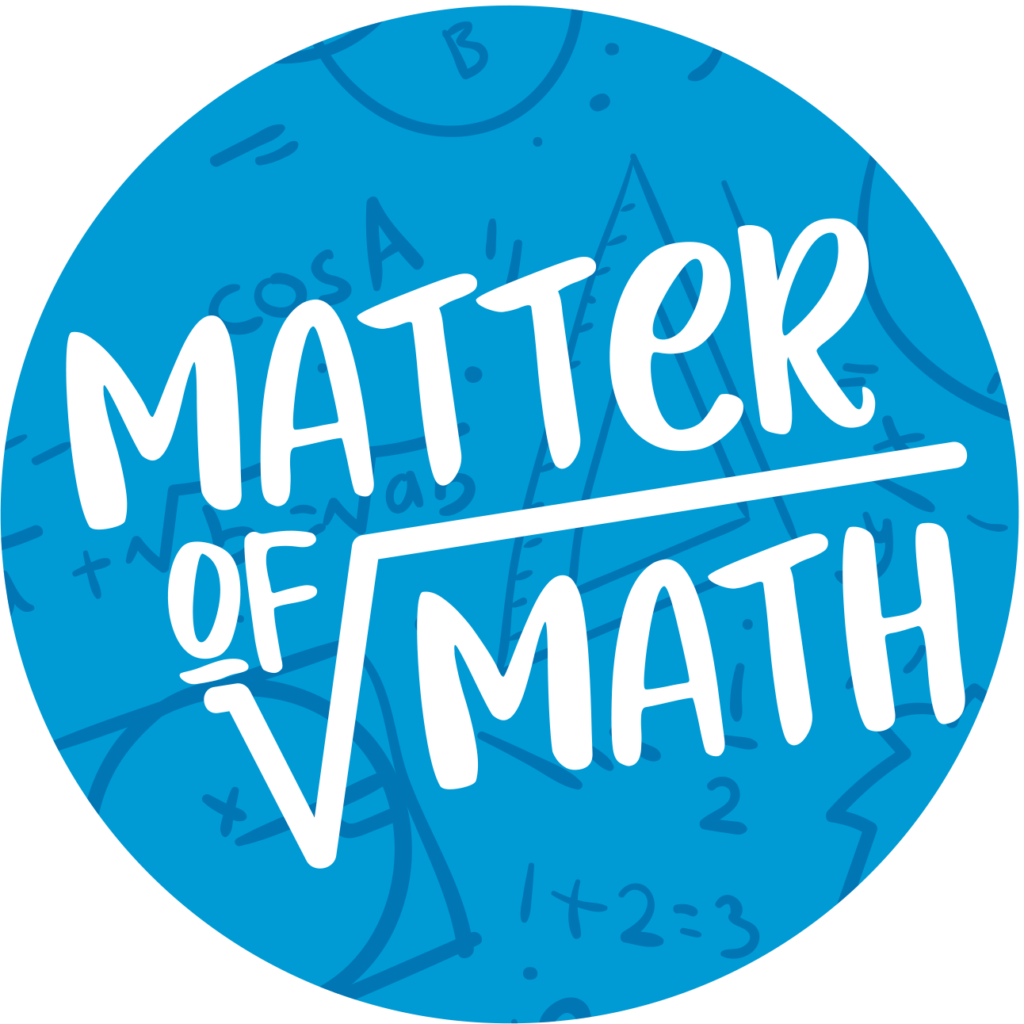8 Tips for Homeschooling a Child with Dyscalculia
Homeschooling a child with dyscalculia can seem daunting, but it’s entirely doable. In fact, it can be one of the best decisions you make to help your child succeed!
What is dyscalculia? Dyscalculia is a learning disability in math and can make math incredibly hard if children are not given the right support.
It goes beyond kids just struggling a little with math and finding it frustrating. Dyscalculia is a learning disorder, which can also be called math/number dyslexia.

Not as widely heard of as dyslexia, experts believe that a similar number of people might have dyscalculia. This means around 5-10% of the population are likely to have this learning difficulty.
Like dyslexia, people with dyscalculia don’t outgrow their difficulties. It’s important as parents and teachers that we show our children strategies to improve their math skills and make accommodations for natural obstacles.
Dyscalculia can impact everyday activities such as shopping, baking, and timekeeping, as they all involve an element of basic math skills or number sense.

Jesse Woods, the homeschooling dad of two and founder of Matter of Math, has plenty of experience working with children with learning disabilities. He’s going to share some of the signs that you can look out for if you’re worried your child has dyscalculia and some strategies and tips for homeschooling kids with this difficulty.
Signs of Dyscalculia
Each child has different difficulties, and dyscalculia presents in different ways from person to person.
Sometimes it is easy to spot when a child has trouble with number sense as early as preschool, in other children math doesn’t become a problem until it gets more complex later on.
Here are some of the tell-tale signs that your child might have dyscalculia, according to their age and stage:
Preschool and Kindergarten
- Difficulty learning to count in the right order and often skips numbers
- Finds it hard to recognize patterns, or sort objects into size, shape, or color
- Struggles to make a connection between number symbols and the word, for example, 2 and two
- Always asks how much longer and doesn’t have a good sense of time
Elementary and Middle School
- Easily forgets numbers and symbols
- Still uses fingers or manipulatives to count rather than using mental math
- Struggles to recall basic math facts
- Easily loses track of game scores
- Has a poor sense of direction and confuses left with right
- Avoids games that involve numbers or any complex math
- Still struggles with a sense of time and has difficulty telling the time
- Has difficulty understanding place value
High School
- Finds it hard to work with graphs and charts
- Can’t think of ways to approach a difficult math question
- Struggles to transfer math concepts to everyday life, for example with money, baking, shopping, etc.
- Has trouble remembering phone numbers and zip codes
- Has difficulty estimating how far or how long it will take to get somewhere
If you’ve spotted these signs in your own children, or if they have a dyscalculia diagnosis, how can you help them learn math in your homeschool?
8 Top Tips for Homeschooling a Child with Dyscalculia
Reduce Stress
The number one tip, before beginning a math lesson with your child, is to make sure they are not stressed. Anxiety and stress greatly reduce a child’s ability to be able to learn new things. Often the very mention of a math lesson can cause your child to feel stressed because they find it so difficult.
You can make changes to the way you learn math by changing the environment you’re in, making sure they are comfortable and have everything they need, allowing snacking during the lesson, etc. Do they find comfort in having you sit with them while they do their math work, or perhaps they’d just like you to be on hand if they need support? Follow your child’s lead, and notice when they are feeling comfortable so that you can have a stress-free lesson.
Use a Multi-Sensory Curriculum
Using a hands-on curriculum, allows your child to think about math concepts from a few different angles, and gives them the best chance of understanding new concepts.
Some children learn best when presented with visual materials, others learn through touch. Jesse uses Math-U-See with his 12-year-old son, but there are many curricula that use a multisensory approach.
Some recommended ones include TouchMath, Ronit Bird, Reflex Math, and Dynamomaths.
Give Them Extra Time
One of the great things about homeschooling is that we can set up our day exactly as we like. There is no pressure to have a certain subject finished at a certain time, so if you know that math is one of the subjects which requires more time, just schedule more time.
Children who have difficulties in math will really benefit from having the element of time pressure removed.
If your children want to sit for exams too, having extra time can help them to finish the questions, and also comes with a host of other benefits like an increase in confidence!
Don’t Rush Through the Curriculum
This one ties nicely into allowing your children more time to finish each lesson. Don’t move on to the next lesson just because that’s what your curriculum is telling you to do if your child hasn’t fully grasped the concept.
It’s better to spend double the time on a basic math concept so it is thoroughly understood, rather than move on to the next step only to find that your child is still struggling with the basic concept.
Revisit Basic Concepts Often
That leads us to one of the most important things you can do to help your child remember basic math concepts. The nature of dyscalculia means that, even when you think your child has grasped a concept, if they go for a prolonged time without practicing what they have learned, they can easily forget or find it hard to remember the concepts.
Try to revisit simple concepts throughout your child’s education. You can do this in a fun way – it doesn’t need to be a sit-down lesson for each revisit. For example, you could practice simple sums in the car, or the multiplication tables while you’re out on a walk.
Allow Accommodations
Many children who have dyscalculia also have other learning difficulties; one example is dyslexia. If they also struggle with reading, make sure you make accommodations and read questions for them, or present the questions as simply as possible.
If you know your child can work out their multiplication tables, allow them to have a printout of the tables next to them as they work through harder questions so they can recall the facts without having to do too many steps in one problem.
This will help them to progress through the curriculum and keep them engaged, rather than feeling overwhelmed.
Once your children understand the basics of addition, subtraction, multiplication, and division, allow them to use calculators where possible.
Give Them a Break
As a parent, you know when something is too much for your child. Give yourself the permission and freedom to take a break from harder math problems if your child is clearly not ready for them.
They’ll build up their confidence much more quickly, by taking a break and going back to something that they find less challenging.
You can always come back to it again in a few months’ time, your child’s education does not need to be rushed.
Give Yourself a Break
Am I doing this right? What if I do it wrong and damage my child’s confidence?! I wish I didn’t run out of patience in that last lesson!… Does this sound familiar? Like any kind of educator, and particularly as a homeschooler, it’s too easy to doubt yourself when you “get it wrong.”
Don’t worry!
Remember that this is a journey for you too, not just your budding pupil. When these times come about, take note of what led to the lesson falling apart, and decide what you’re going to change to avoid it next time. If needed, have a gentle and supportive conversation with your learner.
The Benefits of Homeschooling a Child with Dyscalculia
One of the wonderful benefits of homeschooling children with additional needs is that they won’t feel the same pressure they would in a room full of children who are whizzing through a worksheet or test.
They have no one to compare themselves against, which allows them to develop the math skills they need within their own time, without the pressure.
You and your child can also take the lead and focus on areas of strength rather than drilling things they might find difficult, which increases their self-esteem and motivation to want to carry on learning math.

Jesse Woods founded Matter of Math to provide a multisensory approach to learning, and to make math accessible to everyone from children to adults who have always struggled. He homeschools his own two children, holds a degree in Math and Physics, and is a member of the American Mathematical Society and the National Council of Teachers of Mathematics.
More Math Posts and Helps:

Hello. I am homeschooling a girl that is soon to be 15. She has been in public school all the prior years. I honestly believe that she has dyscalculia. Why they school system never saw this is beyond me. I’m sure they did, but they didn’t want to fool with it. She is on a kindergarten level or maybe even a preschool level. She cannot do one less and one more. She can’t even do the day before yesterday or the day after tomorrow. Would living math be a fit for someone with dyscalculia since she needs life skill more than anything? Should I get the Building Early Math Foundations? Any suggestions appreciated. Thanks!
Hi Cassie. Living math is certainly a helpful option for understanding math concepts. However, you will likely want to talk with a doctor or psychologist to determine where the issues are coming from. It might be dyscalculia, but the problem could stem from other issues with things like eye tracking, conceptual processing, working memory, comprehension, or even anxiety. Please don’t hesitate to reach out to a professional to get her back on track asap. <3
Hello, I am adult with dyscalculia. Since I graduated from high school in 1991. I have forgotten much of the math that I was taught. Homeschooling blogs such as yours. Have given me curriculum to use at home. So I improve thank you so much.
Angela,